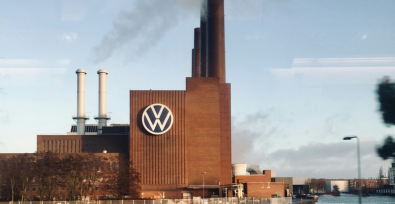From 1974 to 1986, Volkswagen operated a massive cattle ranch in Brazil’s Amazon region. While benefitting from tax breaks from the country’s military dictatorship, its workers were subjected to forced labor, violence, and conditions legally defined as slavery. Now, decades later, a Brazilian court is weighing whether the German automaker should finally be held accountable—thanks to one Catholic priest who refused to let the story disappear.
A decades-long crime hidden in plain sight
From 1974 to 1986, Volkswagen do Brasil controlled the Vale do Rio Cristalino ranch in Pará state, a 75,000-hectare property in the Amazon. Workers were lured from often impoverished and distant regions with promises of fair pay. Instead, they arrived to find armed overseers, debt bondage, withheld wages, and beatings. Escapees were hunted down by gunmen. “We were sold,” survivor Raul Batista de Souza told The Washington Post.
Volkswagen executives, documents show, were aware of the abuses and later flagged the issue as a reputational threat. But no legal case was ever brought. The crimes might have remained buried, had it not been for Father Ricardo Rezende.
One priest kept fighting for justice
Rezende began investigating the ranch in the 1980s, after meeting men who had escaped its control. He documented their accounts, gathered records, and quietly assembled a 1,000-page archive of evidence. He took workers to make reports to the police and he spoke to reporters in 1983. The story made the papers in Brazil and the German media carried it as well. This resulted in a visit from company representatives to show activists and journalists there was no abuse on the ranch.
Expedito Soares, a former worker at the ranch and then state lawmaker, spoke about seeing the evidence with his own eyes.
OSV reports,
A worker had his arms tied and was being taken by a labor contractor known as Abilão (Abílio Dias de Araújo). I ordered them to immediately release the man,” [Soares] recalled.
Abilão argued that the worker was trying to escape the farm, but that he was in debt with it, so they had to get him back.
The company representatives had a ready explanation: it was the labor contractors who were the problem. According to the Washington Post, one later told a German reporter, “The brutality that happened, of course, doesn’t surprise me at all; the Brazilian is a bad person.”
Local authorities confirmed there was “slave labor” happening at the ranch but the only person ever charged was Abilão. The company faced no consequences.
Rezende never gave up even after the company gave up the ranch in 1986. He shared his full archive of the hundreds of cases of abuse with a federal prosecutor in 2019. This is now the foundation of Brazil’s current case against Volkswagen.
People power can make a difference
This case illustrates the failure of state institutions to protect vulnerable people, the ease with which corporations profit from abuse, and the power of individuals to challenge impunity. The Freedom United community is familiar with Volkswagen looking the other way as the company spent years in the Uyghur Region long after credible reports of forced labor and other human rights abuses there. We kept up the pressure and they finally left the Uyghur Region.
Accountability shouldn’t rely on public pressure alone but we can make a difference until corporations are forced to change. Help us amplify stories like this and keep fighting!







Freedom United is interested in hearing from our community and welcomes relevant, informed comments, advice, and insights that advance the conversation around our campaigns and advocacy. We value inclusivity and respect within our community. To be approved, your comments should be civil.
The situation is same also in India. Happy that the long struggle for justice for the workers is in process with the team and priest. Inspiring.